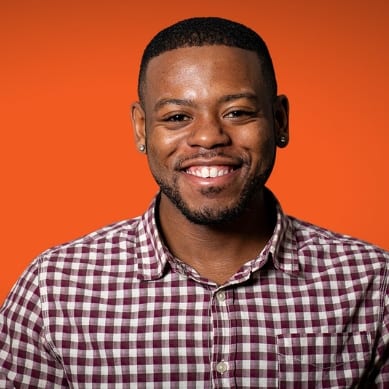Henry Willis is a PhD student in Clinical Psychology at The University of North Carolina at Chapel Hill. He is part of the Health Policy Research Scholars Cohort 2016.
Before we begin, tell us a little bit about yourself and what your research interests are.
I’m a first-generation college student from Jackson, Mississippi. I received my undergraduate degree at Howard University, received a master’s in clinical psychology from Columbia University, and am currently finishing my PhD at UNC Chapel Hill. I’m involved in both research and clinical work. As a psychologist in training, I treat diverse patients suffering from a range of mental health problems. As a researcher, I study the effects of racism and beliefs about race on the mental health of African-American youth.
What’s the story behind why you’re doing what you’re doing?
I discovered my love for the field of psychology through an introductory course in high school. I was fortunate to go on to a historically Black college/university (HBCU), where I majored in psychology and African-American studies. There, I continued to explore the psychological well-being of African-Americans. I always knew I wanted to explore mental health in African-Americans, but it wasn’t until my master’s program at Columbia that I discovered the why and what. While working as a research assistant at Columbia, I worked on projects that were not able to recruit or retain African-American young adults, despite being near one of the largest communities of Black people (Harlem)! This reflected one of the weaknesses of the field: Do we know if our standard mental health treatments that were developed by and for white people are truly effective for racial/ethnic minority groups? This is what drives my work and my passion to explore not only how racial/ethnic identity impacts mental health, but also how treatments can be changed to better fit the needs of African-Americans and other racial/ethnic minority groups.
Tell us about a project you are currently working on that you are excited about?
I’m really excited about a mobile health app for mental health that I’m developing. It is geared toward African-American young adults and it’s going to offer a lot of services that should help improve access to mental health knowledge and techniques to improve and manage mental health symptoms.
For people unfamiliar with your research area, what is one piece of information you think is important for them to know?
We talk a lot about how racism and racial discrimination negatively impact health, but we don’t talk enough about the resilience of African-Americans, African-American youth in particular. Not all African American youth who experience racism are affected in the same way, and one thing that contributes to their resilience is their beliefs about what it means to be a member of their race (aka their racial identity). Research has shown that feeling positively about being Black, and having positive feelings about other Black people, not only leads to better mental health over time for African American youth, but it also can protect against experiences of discrimination.
Who is a researcher you admire and why?
The researcher I admire the most is my advisor Enrique W. Neblett. Not only is he an impeccable researcher, teacher, and advisor, but he is also a great person. His devotion to his family, students, and to the well-being of African American youth is what has inspired me to follow this road into academia. He has taught me not only about the importance of doing strong research alongside historically marginalized people, but also how to balance a life in academia as an African American male in the United States.
How has being an HPRS Scholar helped you during your time as a doctoral candidate?
I could talk forever about how being an HPRS scholar has impacted me as a doctoral candidate. I’ll focus on a few things that stand out above the rest — connections to scholars of color and training on translating research. Many of my favorite memories during my time in graduate school involve my peers and mentors from the HPRS program. Not only do they provide social support, but they have helped me develop my research ideas and have also inspired me to become a better scholar and human. Also, I have grown in translating my research to a variety of audiences … from scholars in other fields, to journalists and community members! This has not only broken down the barriers between academia and the community I hope to impact, but it has also made me more confident in being a scientist that is doing work to impact the health of all people.
In the RWJF HPRS program we have worked with you to help you think further about using your research to develop policy. If you could use your research to change any policy, what policy would it be?
I would definitely want to include some sort of racial and ethnic identity exploration curriculum in middle and/or high school. We know that identity beliefs lead to better health outcomes, and that there are also many researchers that have created school- and counseling-based intervention programs. If there were some way to make sure racial/ethnic minority youth have access to these programs for free, I think it would definitely help address health disparities.
Ok, here’s a fun question to wrap things up. If you could visit any place in the world, where would you choose to go and why?
Great question! I would definitely choose a Caribbean island. I would love to experience the culture, and the beach of course!
Thank you so much for your time!

